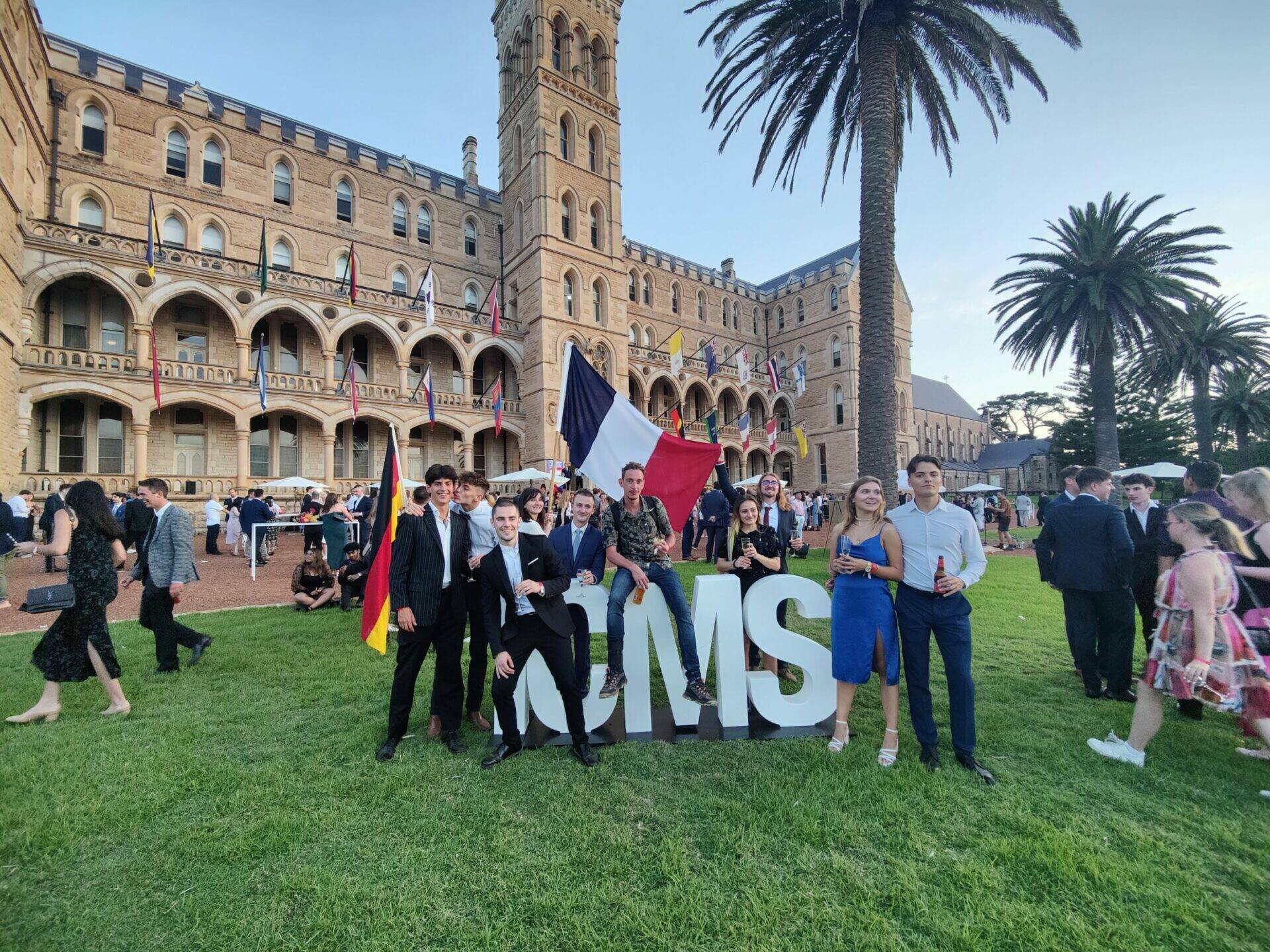Sports Product Manager
HOW TO BECOME A SPORTS PRODUCT MANAGER
Sports product managers are in charge of designing, developing and managing a product or a brand.
What is the sports market?
Whether it’s watching top-level sports or emergency fitness sessions after the winter holiday, French people are particularly fond of sports. As a matter of fact the CNDS (French national center for the development of sports), found that 64% of French people over 15 had a regular sports activity. While sports business tends to be more masculine, it is gradually attracting more female employees, customers and top-level athletes. In 2019, for example, sailing and rugby experienced very strong growth in the number of women’s licenses (up by 13% and 6% respectively). To practice sports in the best conditions, women and men, budding and professional athletes alike seek all kinds of different sports products: textile, machines or accessories.
Worth over 38 billion euros in France, the sports market is growing at an annual rate of 5%, more than twice the rate of global GDP, including 12 billion euros for the sporting goods market alone (manufacturing and retail). Some of the best-selling products in this field are shoes, clothing and bicycles. But to sell such items, you need salespeople! In manufacturing, retail and rental alone, the industry employs over 75,000 people. This includes product managers, who play a decisive role in the successful marketing of a product.
What are the duties of a sports product manager?
The role of a sports product manager consists in managing a product or product range designed for amateur or professional athletes. They organize and oversee the entire life cycle of the product in question. The role involves working hand-in-hand with many other departments, such as R&D, product engineering, communication, marketing and sales. Product managers can work in different types of organizations involving any sporting activity (soccer, gymnastics, swimming, climbing, etc.), such as sports stores, equipment manufacturers, marketing consultancies, sports clubs and many other types of businesses.
When the product or product range they manage has not yet been designed, or even ideated, they must collect extensive market intelligence. Prior to launching the design of a clothing item, an accessory or even a machine, they must assess whether or not the product will have a chance of success with consumers. To this end, they conduct market surveys to understand consumer needs and calculate sales forecasts. In addition, they keep an eye on other sports businesses through competitive intelligence.
Once this prior assessment is complete, they propose one or several design projects to the designing and engineering teams. If the project is approved, these teams are then responsible for designing the project prototype, and its final version. Before starting production, sports product managers must design consumer tests to fine-tune the product. Once the product is optimized, production may start. Throughout the designing phase, they must comply both with the future product’s specifications and with legal requirements.
When everything is ready, product managers must make sure that the object sells. To boost sales, they develop a range of promotion and sales strategies: price management, referencing, distribution techniques, dedicated sales initiatives, etc.
Key qualities and skills required of a sports product manager
To be considered for a job as a sports product manager, it is obviously necessary to know your field well, and therefore to have good general knowledge of sports, and particularly of emerging trends. This means demonstrating an inquisitive mind to constantly monitor and keep abreast of the industry. This also applies to the competition, which should be monitored closely to avoid falling behind. A salesperson at heart, a product manager should be a real winner and be particularly ambitious. Since they are at the origin of the product they manage, product managers should demonstrate creative flair.
To successfully implement their research and strategies, they should possess a sound knowledge of commerce, budgeting, business management and management. Successfully accomplishing these missions ideally requires an innate sense of analysis and a measure of diligence. Methodical and organized, sports product managers also cultivate a sixth sense, in particular the flair for detecting current trends.
Autonomy is a must for this career. However, the role requires a certain taste for teamwork and excellent listening skills as sports product managers regularly work with other professionals. In order to convince their collaborators as to the durability of their projects, they must also be negotiation and persuasion experts. But that doesn’t mean they shouldn’t demonstrate diplomatic skills. Trusting in the skills of others is the key to successful projects, especially when it comes to delegating tasks to colleagues when necessary. Finally, in today’s global market, product managers must have a good command of English. Proficiency in other foreign languages may be a plus.
Salary range and career prospects
As a rule, candidates to this career should have worked several years as assistant product managers before applying to such a position. A product manager’s average gross monthly salary may range from €3,000 to €4,500 depending on experience.
Professionals who have gained considerable experience as a sports product manager may move on to become group manager, or even marketing director within their organization. As sports business professionals, they may also consider specializing in a specific sport.
What are the qualifications required to become a sports product manager?
To become a sports product manager, it’s not enough to have passed your baccalauréat. Higher education is a prerequisite for good career prospects. Preferably, you’ll even need a diploma at bac+5 level. We strongly advise you to follow a International Sport Management Program at a business school, preferably with an international outlook. You can also opt for a master’s degree in marketing communications, or study at a business school.
Students wishing to specialize in sport right from the start of their studies can opt for specialized courses such as a bachelor’s degree in sports management (bac+3 post bac) at a private college, or a master’s degree in the same field. Gaining experience by following these sandwich courses (contrat de professionnalisation or contrat d’apprentissage) can be a plus for a beginner’s CV.
Whether it’s watching top-level sports or emergency fitness sessions after the winter holiday, French people are particularly fond of sports. As a matter of fact the CNDS (French national center for the development of sports), found that 64% of French people over 15 had a regular sports activity. While sports business tends to be more masculine, it is gradually attracting more female employees, customers and top-level athletes. In 2019, for example, sailing and rugby experienced very strong growth in the number of women’s licenses (up by 13% and 6% respectively). To practice sports in the best conditions, women and men, budding and professional athletes alike seek all kinds of different sports products: textile, machines or accessories.
Worth over 38 billion euros in France, the sports market is growing at an annual rate of 5%, more than twice the rate of global GDP, including 12 billion euros for the sporting goods market alone (manufacturing and retail). Some of the best-selling products in this field are shoes, clothing and bicycles. But to sell such items, you need salespeople! In manufacturing, retail and rental alone, the industry employs over 75,000 people. This includes product managers, who play a decisive role in the successful marketing of a product.
The role of a sports product manager consists in managing a product or product range designed for amateur or professional athletes. They organize and oversee the entire life cycle of the product in question. The role involves working hand-in-hand with many other departments, such as R&D, product engineering, communication, marketing and sales. Product managers can work in different types of organizations involving any sporting activity (soccer, gymnastics, swimming, climbing, etc.), such as sports stores, equipment manufacturers, marketing consultancies, sports clubs and many other types of businesses.
When the product or product range they manage has not yet been designed, or even ideated, they must collect extensive market intelligence. Prior to launching the design of a clothing item, an accessory or even a machine, they must assess whether or not the product will have a chance of success with consumers. To this end, they conduct market surveys to understand consumer needs and calculate sales forecasts. In addition, they keep an eye on other sports businesses through competitive intelligence.
Once this prior assessment is complete, they propose one or several design projects to the designing and engineering teams. If the project is approved, these teams are then responsible for designing the project prototype, and its final version. Before starting production, sports product managers must design consumer tests to fine-tune the product. Once the product is optimized, production may start. Throughout the designing phase, they must comply both with the future product’s specifications and with legal requirements.
When everything is ready, product managers must make sure that the object sells. To boost sales, they develop a range of promotion and sales strategies: price management, referencing, distribution techniques, dedicated sales initiatives, etc.
To be considered for a job as a sports product manager, it is obviously necessary to know your field well, and therefore to have good general knowledge of sports, and particularly of emerging trends. This means demonstrating an inquisitive mind to constantly monitor and keep abreast of the industry. This also applies to the competition, which should be monitored closely to avoid falling behind. A salesperson at heart, a product manager should be a real winner and be particularly ambitious. Since they are at the origin of the product they manage, product managers should demonstrate creative flair.
To successfully implement their research and strategies, they should possess a sound knowledge of commerce, budgeting, business management and management. Successfully accomplishing these missions ideally requires an innate sense of analysis and a measure of diligence. Methodical and organized, sports product managers also cultivate a sixth sense, in particular the flair for detecting current trends.
Autonomy is a must for this career. However, the role requires a certain taste for teamwork and excellent listening skills as sports product managers regularly work with other professionals. In order to convince their collaborators as to the durability of their projects, they must also be negotiation and persuasion experts. But that doesn’t mean they shouldn’t demonstrate diplomatic skills. Trusting in the skills of others is the key to successful projects, especially when it comes to delegating tasks to colleagues when necessary. Finally, in today’s global market, product managers must have a good command of English. Proficiency in other foreign languages may be a plus.
As a rule, candidates to this career should have worked several years as assistant product managers before applying to such a position. A product manager’s average gross monthly salary may range from €3,000 to €4,500 depending on experience.
Professionals who have gained considerable experience as a sports product manager may move on to become group manager, or even marketing director within their organization. As sports business professionals, they may also consider specializing in a specific sport.
To become a sports product manager, it’s not enough to have passed your baccalauréat. Higher education is a prerequisite for good career prospects. Preferably, you’ll even need a diploma at bac+5 level. We strongly advise you to follow a International Sport Management Program at a business school, preferably with an international outlook. You can also opt for a master’s degree in marketing communications, or study at a business school.
Students wishing to specialize in sport right from the start of their studies can opt for specialized courses such as a bachelor’s degree in sports management (bac+3 post bac) at a private college, or a master’s degree in the same field. Gaining experience by following these sandwich courses (contrat de professionnalisation or contrat d’apprentissage) can be a plus for a beginner’s CV.






